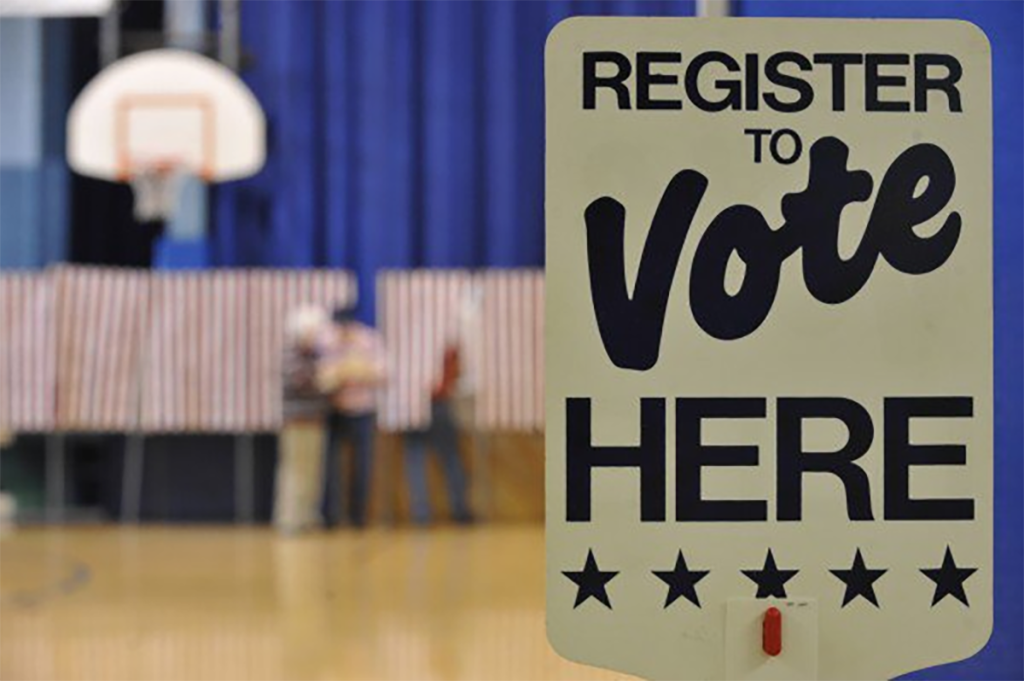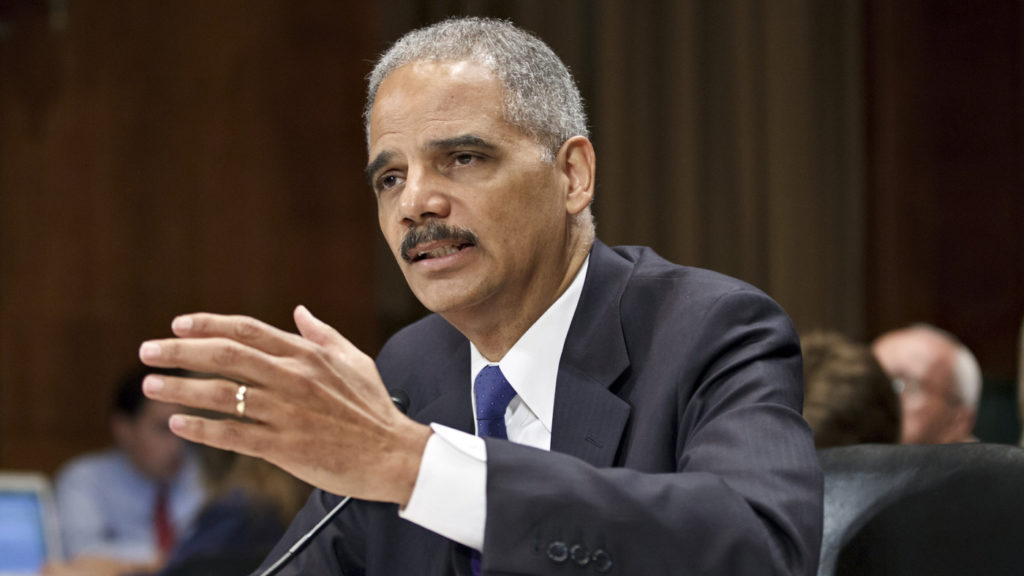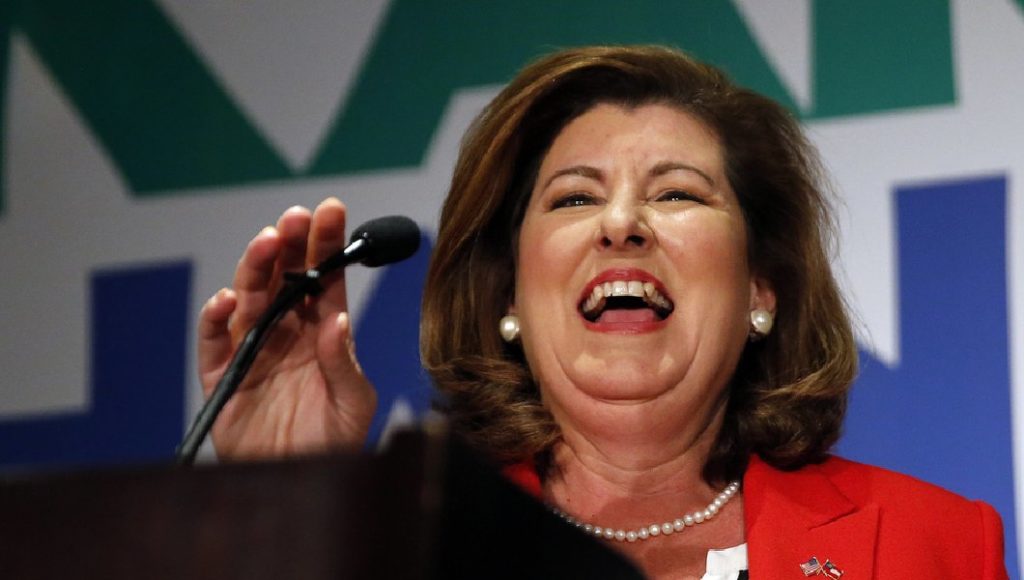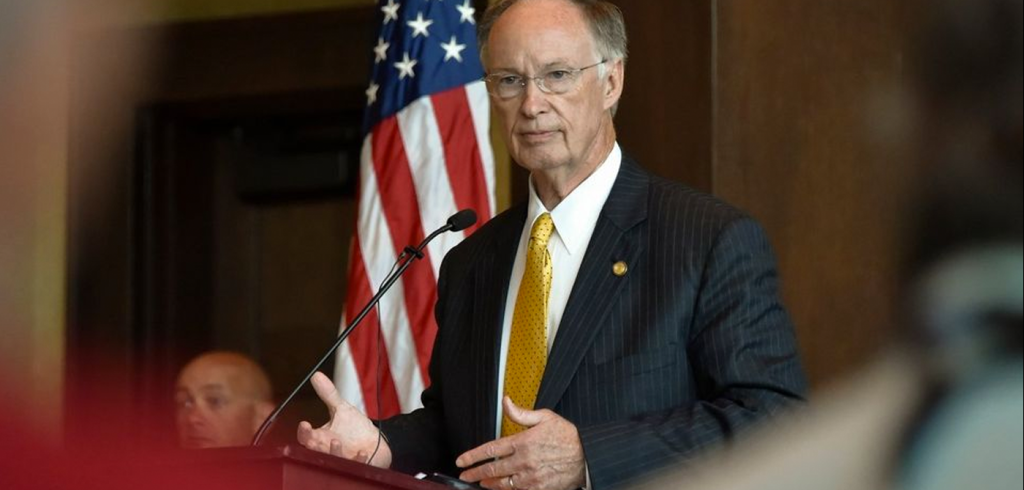Lawsuit: Some Georgia absentee ballots sent out too late

Election officials in some Georgia counties waited too long to send out absentee ballots for the state’s Dec. 4 runoff election, so the deadline for returning those ballots should be extended, the Georgia Democratic Party argues in a new federal lawsuit. Results of the general election were certified Nov. 17, but at least 65 of the state’s 159 counties didn’t send out absentee ballots for the runoff until this week, according to the lawsuit filed Thursday. That leaves some would-be absentee voters with only a week to get their ballots back to elections officials. There are two statewide races on the runoff ballot — secretary of state and a seat on the Public Service Commission. Runoff elections in Georgia are triggered when no candidate wins more than 50 percent of the vote. The lawsuit was filed against interim Secretary of State Robyn Crittenden in her official capacity as the state’s top elections official. A spokeswoman for her office didn’t respond to an email Friday seeking comment. The state Democratic Party voter protection hotline received calls from voters seeking help getting absentee ballots they had applied for, the lawsuit says. It is the latest in a series of federal lawsuits filed before and after the general election raising concerns about how and whether the state counts certain ballots. Generally, absentee ballots must be received by Election Day to be counted. The lawsuit asks a judge to order that absentee ballots postmarked by Dec. 4 and received by Dec. 7 be counted. It also asks that the secretary of state be prohibited from certifying the election results until she has confirmed that those ballots have been counted. Georgia law says county officials have to send absentee ballots to eligible applicants for a runoff election “as soon as possible” after the results of the general election are certified, the lawsuit says. Data from the secretary of state’s office shows that five counties began sending out absentee ballots on Nov. 19, the first business day after the general election results were certified, the lawsuit says. Several others sent out absentee ballots on Nov 20 or 21. But 44 counties didn’t send out absentee ballots until Nov. 26, and 21 more waited until Nov. 27, the lawsuit says. “This has and will result in arbitrary and disparate treatment of voters who seek to exercise their respective rights to vote via absentee mail-in ballot, based solely on their county of permanent residence,” the lawsuit says. The number of people affected is not insignificant, the lawsuit says, noting that 283,839 people requested absentee ballots in the general election and at least 121,301 people had submitted applications for absentee ballots for the runoff election. Overseas and military absentee ballots already are considered valid if they’re postmarked by Election Day and received within three days after that, so extending that deadline to other absentee ballots would not be overly burdensome for election officials who have until Dec. 10 to certify their election results, the lawsuit argues. If that solution is not adopted, state Democratic Party chairman Dubose Porter said in a statement submitted with the lawsuit, some Georgia citizens “will lose their fundamental right to vote, because their ballots will have been sent to them too late to cast a ballot that will be counted.” Republished with permission from the Associated Press.
Terri Sewell calls Georgia voter verification law ‘voter suppression’

More than 6.9 million Georgians are registered to vote in next month’s general election, the Georgia Secretary of State’s Office reported Wednesday. Secretary of State Brian Kemp announced Georgia shattered the all-time voter registration record with over 6,915,000 active and inactive voters on the rolls. Kemp expects the total number to break 7,000,000 voters at any moment as counties continue to process forms received by yesterday’s deadline. “Despite what you hear or read, the numbers are clear. While outside agitators disparage this office and falsely attack us, we have kept our heads down and remained focused on ensuring secure, accessible, and fair elections for all voters. The fact is that it has never been easier to register to vote and get engaged in the electoral process in Georgia, and we are incredibly proud to report this new record.” But despite the record numbers, some are still frustrated with the state’s voter registration process as there are currently more than 53,000 voter registration applications that were not immediately approved because they failed to clear the state’s “exact match” standard. According to Georgia law, if a registering voter’s information on a their registration form does not match the information in a federal or state database, the applicant’s status is marked “pending.” From there, applicants have 26 months to provide up-to-date information. They are also able to present the information at the polls and be eligible to vote a regular ballot on the spot Alabama 7th District U.S. Rep. Terri Sewell for one, is calling this “voter suppression.” “This voter suppression needs to stop. Voters are supposed to choose their lawmakers, not the other way around,” Sewell posted on Facebook. Two groups, the Lawyers’ Committee and the Campaign Legal Center, have filed a lawsuit against Kemp regarding the voter verification practice, alleging that the exact match system violates the Voting Rights Act, the National Voter Registration Act, and the U.S. Constitution. It remains to be seen what will happen to the more than 53,000 applications in waiting. The voter registration deadline in Georgia was Tuesday, October 9.
Lawsuits claim Congressional maps dilutes black voters in Alabama, Georgia, Louisiana

A group backed by Democratic former U.S. Attorney General Eric Holder launched a legal campaign Wednesday in an effort to create more black congressional districts in three Southern states: Alabama, Georgia and Louisiana. The group, the National Redistricting Foundation, claims the current congressional maps violate a section of the Voting Rights Act by discriminating against black voters by not allowing them an equal opportunity to elect candidates of their choice to the U.S. House of Representatives. They seek to block the three states from holding any further congressional elections under the current maps that were approved in 2011. Alabama 7th District U.S. Rep. Terri Sewell, who represents the state’s only majority-minority congressional district, applauded the lawsuits. “I applaud today’s effort by the National Redistricting Foundation to challenge the underrepresentation of African American voters in Alabama,” said Sewell. “Generations of Alabamians have fought tirelessly for equal voting rights, and I support all efforts to guarantee fair representation and access to the polls. More than fifty years after the enactment of the Voting Rights Act of 1965, our work to prevent voter discrimination and unfair electoral practices is not over. Our vote is our voice, and protecting the vote for all Americans must remain a top priority.”
Kay Ivey burns Georgia Gov. Nathan Deal in national championship game tweet

Alabama Governor Kay Ivey masterfully burned Georgia Governor Nathan Deal in a tweet Sunday evening ahead of Monday’s National Championship football game between the Alabama Crimson Tide and the Georgia Bulldogs. Last Thursday, Deal declared Friday, January 5th a day of celebration for Georgia Bulldog fans, calling it “UGA Football Friday” and encouraging fans to wear red and black in support of the Dawgs. I’ve proclaimed January 5 as “#UGA Football Friday,” & I encourage fans far and wide to represent @FootballUGA tomorrow by wearing red and black. #keepchoppingwood #ATD pic.twitter.com/2zDfayeCb6 — Governor Nathan Deal (@GovernorDeal) January 4, 2018 Across the state line, Ivey choose not to issue a similar proclamation in Alabama. When New York Times reporter Alan Blinder pointed out her decision, Ivey issued the ultimate clap back: In Alabama, we don’t celebrate making the national championship. Only winning it. Talk to y’all on Tuesday. #RollTide https://t.co/zTbnG12Y0D — Kay Ivey (@kayiveyforgov) January 8, 2018 Ivey’s tweet is the latest example of the Alabama-Georgia rivalry heating up between politicians. Last week, Alabama 1st District U.S. Congressmen Bradley Byrne and Georgia 3rd District U.S. Rep. Drew Ferguson on Thursday announced a friendly wager on the College Football Playoff National Championship Game. Ferguson staked Chick-fil-a on a Bulldog victory, and Byrne risked Alabama seafood for a Crimson Tide win. Their wager was followed by Alabama 7th District U.S. Rep. Terri Sewell and Georgia 10th District U.S. Rep. Congressman Jody Hice making a similar wager. At stake is local barbecue and a statement on the House floor supporting the winning team.
Alabama beats Clemson, will take on Georgia in the National Championship game

Monday night Alabama’s Crimson Tide beat the Clemson Tigers 24-6 in the Sugar Bowl just hours after the Georgia Bulldogs bested the Oklahoma Sooners 54-48 in an exciting double-overtime in the Rose Bowl, advancing both teams to the 2018 College Football Playoff National Championship next Monday night. For the second time in seven seasons, two teams from the Southeastern Conference (SEC) will go head-to-head for a national title. Alabama will be playing in its sixth championship game in nine seasons, while Georgia is aiming for its first title since 1980. Here’s what you need to know: Who: Alabama vs. Georgia What: College Football Playoff championship When: Monday, Jan. 8, 2018 Where: Mercedes-Benz Stadium, Atlanta Time: 7 p.m. CT TV: ESPN Livestream: WatchESPN
Analysis: Dem loss in Georgia underscores party challenges

Republicans just got a big argument for sticking with President Donald Trump and pushing forward with dismantling former President Barack Obama‘s health law. And Democrats are struggling to translate the energy of their core supporters into actual election victories. Tuesday night’s outcome in a special House race in Georgia was a triumph for the GOP, and the most recent and devastating illustration of the Democrats’ problems – from a weak bench and recruiting problems to divisions about what the party stands for today. Instead of a win or even a razor-thin loss by Democrat Jon Ossoff that many had expected, Republican Karen Handel ended up winning by a relatively comfortable 4 percentage point margin in the wealthy suburban Atlanta district previously held by Health and Human Services Secretary Tom Price. That followed another recent Democratic disappointment in Montana, where the Republican candidate won even after last-minute assault charges, and an earlier loss for the Democrats in Kansas. Rep. Rick Nolan, D-Minn., said Democrats are not as good on delivering a winning message to voters as they should be. “Harry Truman said it best, if you want to be Republican-lite, people will vote for the real thing every time,” Nolan told reporters Wednesday. Indeed the best news Democrats got Tuesday night was that a different special House race, in South Carolina, ended up closer than the Georgia contest even though it had drawn little national attention. Republican Ralph Norman beat Democrat Archie Parnell by around 3 percentage points in South Carolina, closer than expected and a warning sign to the GOP not to take any seat for granted. But for Democrats, having failed to unseat a Republican in four special House elections in a row despite an extremely energized base, it’s now a time for soul-searching – and finger-pointing. Ossoff ran a careful campaign and shied away from talking about Trump, and some groups on the left wasted no time in insisting that Democrats must draw brighter contrasts with the GOP. “Defeating Republicans in districts that they have traditionally held requires doing something drastically different than establishment Democrats have done before – specifically, running on a bold progressive vision and investing heavily in direct voter contact,” said Jim Dean, chair of Democracy for America. The Georgia race was the most expensive House race in history, with many millions spent on both sides. The fact that that level of investment failed to pay off with a win against a Republican candidate widely viewed as uninspiring left Democrats frustrated and dispirited heading into the 2018 midterm elections. Democrats will need to pick up 24 House seats to take back the majority. The outcome “better be a wake-up call for Democrats – business as usual isn’t working,” Rep. Seth Moulton, D-Mass., said on Twitter. “Time to stop rehashing 2016 and talk about the future.” House Democratic leaders tried to play down the loss ahead of time, pointing out that the Georgia race took place on GOP-friendly terrain, as did the other recent special elections. Rep. Joe Crowley of New York, chairman of the House Democratic Caucus, said that there are 71 districts that will be more favorable for Democrats to contest than the one in Georgia. Democrats face gerrymandered districts after the last census combined with Trump selecting lawmakers for his administration from districts the GOP should hold. “They pick people in safe and tough districts for Democrats to win,” Crowley said Wednesday. But for Republicans from the president on down, it was time to celebrate. Trump sent supporters a text message crowing, “Congrats to Karen Handel on a HUGE win in GA! Democrats lose again (0-4). Total disarray. The MAGA Mandate is stronger than ever. BIG LEAGUE.” As the results rolled in Tuesday, AshLee Strong, spokeswoman to House Speaker Paul Ryan, mused over Twitter, “Remember when they told us we’d be punished in the special elexs for following through on our promise to #RepealAndReplace #obamacare?” Indeed the string of special election wins, especially in Georgia, sent a powerful message to Republicans that they must be doing something right, even though Trump’s approval ratings are low by historical standards and the GOP has yet to notch a single major legislative accomplishment on Capitol Hill. Far from rethinking their support for Trump or their plans to undo former President Barack Obama’s health care law, Republicans seem likely to stay the course. “It shows us that people are wanting some of the things we’ve been talking about, President Trump’s been talking about – less government, more power to the folks. Tax reform. That’s the kind of things we’ve got to get done. They believe in us being better able to do it rather than the other side,” said Rep. Roger Williams, R-Texas. And as for the Democrats, they, clearly, are doing something wrong. What exactly it is, and whether they can fix it, will be debated in the weeks and months ahead. Republished with permission of The Associated Press.
Alabama worried Florida, Georgia water settlement could impact its rivers

Water wars between Florida and Georgia are heating up again over the directive by a U.S. Supreme Court special master ordering the states to reach a settlement that could have a substantial impact on Alabama rivers As reported by POLITICO Florida’s Bruce Ritchie, Alabama is questioning a directive by special master Ralph Lancaster asking Florida and Georgia to settle its long-running water dispute, particularly over the suggestion the two states consider getting water from other sources during times of drought. The debate between Florida and Georgia began in 2013 after the devastation of the Apalachicola Bay oyster bed, leading Florida to request the U. S. Supreme Court to intervene by placing a limit on Georgia’s water consumption. Ritchie writes that Alabama, in a letter to the court last week, expressed concern that those “other sources” – particularly “the importation of water from outside the ACF (Apalachicola-Chattahoochee-Flint River) Basin” – include water from rivers flowing from Alabama into Georgia, such as the Coosa and Tallapoosa rivers. Alabama has not been named in the case since Florida, and the court, acknowledged the only issue at hand is with Georgia’s water consumption. However, Ritchie notes that Alabama feels that if water transfers are included in a settlement, the state would be forced to join the action. Also, Alabama argues that the court does not have authority to order water transfers from areas other than the ACF system. Birmingham Attorney John C. Neiman Jr., representing Alabama, wrote in a letter to Lancaster: “If the court contemplates a decree authorizing transfers from interstate river basins flowing into Alabama as a result of settlement discussions or otherwise, Alabama would respectfully request that it first receive notice of that possibility and be given the opportunity to assert its interests in an appropriate way. “To this end, Alabama is willing to participate in any negotiations between Florida and Georgia that address this issue, and will separately ask Florida and Georgia to include Alabama in any such negotiations,” Neiman concluded.
Days from inauguration, Donald Trump still owns/controls 500 companies that make up the Trump Organization

President-elect Donald Trump pledged to step away from his family-owned international real estate development, property management and licensing business before taking office Jan. 20. With less than two weeks until his inauguration, he hasn’t stepped very far. Trump has canceled a handful of international deals and dissolved a few shell companies created for prospective investments. Still, he continues to own or control some 500 companies that make up the Trump Organization, creating a tangle of potential conflicts of interest without precedent in modern U.S. history. The president-elect is expected to give an update on his effort to distance himself from his business at a Wednesday news conference. He told The Associated Press on Friday that he would be announcing a “very simple solution.” Ethics experts have called for Trump to sell off his assets and place his investments in a blind trust, which means something his family would not control. That’s what previous presidents have done. Trump has given no indication he will go that far. He has said he will not be involved in day-to-day company operations and will leave that duty to his adult sons, Eric and Donald Trump Jr. The president-elect has not addressed the ethical minefield of whether he would retain a financial interest in his Trump Organization. A look at what’s known about what Trump has and hasn’t tried to resolve his business entanglement before his swearing-in: FOREIGN INVESTMENTS Trump has abandoned planned business ventures in Azerbaijan, Brazil, Georgia, India and Argentina. The Associated Press found he has dissolved shell companies tied to a possible business venture in Saudi Arabia. It’s unclear whether those moves are signs that Trump is dismantling the web of companies that make up his business. Trump Organization general counsel Alan Garten has insisted none of the closures is related to Trump’s election. He calls them “normal housecleaning.” The Trump Organization still has an expanding reach across the globe: The Trump International Golf Club in Dubai, in the United Arab Emirates, is set to open next month. Trump has said there will be “no new deals” while he’s in office. But Eric Trump, an executive vice president at the Trump Organization, told Argentinian newspapers last week that the company was open to another business venture in the country. “We would like to find something,” Eric Trump told Clarin, as he toured a Trump building construction site. “We’ll find a project.” The younger Trump did rule out expansion in Russia, at least any time soon. “Is there a possibility sometime in the next 20, 30 years we end up in Russia? Absolutely. Is it right for us right now? Probably not,” Eric Trump said, in a video interview with La Nacion posted on the newspaper’s website. Asked about the potential for conflicts of interest if the business continues to operate, Eric Trump compared the separation between the Trump-led government and Trump-led company to the separation between church and state. “These two things will be unfailingly separate,” he said, adding, “we will not share functions.” ___ DOMESTIC BUSINESSES Of Trump’s U.S. portfolio, no venture has become more emblematic of the potential conflicts of interest facing Trump than his hotel at the Old Post Office in the nation’s capital. The federal government, which he soon will oversee, holds the lease on the building he turned into a sparkling luxury hotel that opened shortly before Election Day. The terms of Trump’s contract with the government expressly prohibit elected officials from having a financial interest in the property. Democratic senators said the General Services Administration told them that the moment Trump takes office, he would violate the terms of his contract Neither GSA nor Trump transition officials responded to inquiries about what steps, if any, Trump has taken with regard to that contract provision. Trump is still listed as a producer for the reality TV show, “Celebrity Apprentice.” He has said he will not spend time working on the show. Financial disclosures he filed during the campaign show his company, Trump Productions, earned about $5.9 million from “The Apprentice” shows in 2015. Trump has a considerable amount of business debt that could put creditors in the position of having leverage over an enterprise with close ties to the U.S. president and his family. Last May, Trump reported on his financial disclosure that he had at least $315 million in debt related to his companies. The disclosed debt, mostly mortgages for his properties, is held by banks, including Deutsche Bank and investors who bought chunks of the debt from the original creditors. ___ CHARITIES Last month, Trump announced that he would shutter his charity, the Donald J. Trump Foundation, to avoid conflicts of interest. The decision came after the foundation admitted in a tax filing that in 2015 and an unspecified number of previous years it violated IRS prohibitions against self-dealing, broadly defined as using charity money or assets to benefit Trump, his family, his companies or substantial contributors to the foundation. The New York attorney general’s office has said the foundation cannot dissolve until it completes its investigation into whether Trump used the foundation for personal gain. The attorney general’s office has not said whether the investigation will be wrapped up by Trump inauguration. Eric Trump has decided to shut down his charity, which primarily raised money for St. Jude’s children’s hospital, to pre-empt conflicts of interest. That move came after the younger Trump was found to be offering in a charity auction a coffee date with his sister, Ivanka Trump, who is expected to take a position in the White House. ___ FAMILY Questions remain about how Ivanka Trump and husband Jared Kushner, who is planning to advise the president, will separate from their own businesses. On Saturday, representatives for Kushner told the AP that he has been talking with the Office of Government Ethics and is exploring taking steps to disentangle himself from his business, The Kushner Companies, in preparation for taking a White House role. Under those plans, Kushner representatives say he
Alabama joins Florida to request cap on Georgia water use

Alabama filed a brief Friday supporting Florida’s federal lawsuit to cap Georgia’s water use from federal reservoirs that terminate in Apalachicola Bay. The state cited its “long experience combating Georgia’s excessive withdrawals” and said Georgia “has largely chosen not to invest its resources in reservoirs and other infrastructure” as the population of Atlanta has outgrown its water supply. Florida filed the suit in 2013, arguing that Georgia’s excessive water use has been damaging the seafood industry in Apalachicola Bay, and Alabama is one of several parties to file a brief in support of Florida’s case ahead of the Oct. 21 deadline set by the court. In addition to Alabama, the National Audubon Society, Defenders of Wildlife, Florida Wildlife Federation, and Apalachicola Riverkeeper filed a joint brief in support of Florida’s suit. Those groups said the “long-term ecological sustainability of this vital and vibrant ecosystem depends, critically, on freshwater flows moving through the system at the right times” and that Georgia’s increased water consumption from the Apalachicola-Chattahoochee-Flint system have dried out the Apalachicola River, “threatening the survival of numerous species and jeopardizing the economic vitality of local communities.” Georgia has its share of supporters as well, including Colorado, which argued in a brief that Florida must not only prove it has been damaged by the increased water use, but be able to show that the damage incurred is greater than the benefit received by Georgia. The case is set to go to trial Oct. 31 in Portland, Maine.
U.S. agency orders corrective action after gas pipeline spill

Fuel supplies in at least five states are threatened by a gasoline pipeline spill in Alabama, and the U.S. Department of Transportation has ordered the company responsible to take corrective action before the fuel starts flowing again. Colonial Pipeline Co. must conduct testing and analysis on the failed section of the pipeline, according to the department’s Pipeline and Hazardous Materials Safety Agency, which is investigating the spill in rural Alabama. The company has acknowledged that between 252,000 gallons and 336,000 gallons of gasoline leaked from a pipeline near Helena, Alabama, since the spill was first detected Sept. 9. It’s unclear when the spill actually started. The pipeline section that failed runs from Mississippi to Atlanta. The agency said the spill is “within an unusually sensitive ecological area” and it ordered Colonial to take action “to protect the public, property and the environment from potential hazards.” “The department will remain on site to carry out its investigation, and make sure the operator is taking the necessary steps to prevent any future incidents,” agency administrator Marie Therese Dominguez said in a statement. In a statement Saturday, the Alpharetta, Georgia-based company said that repair work had begun in an effort to return the pipeline to service “as rapidly and safely as possible.” The company said it is shipping as much gasoline as possible on its distillate mainline, or Line 2, in order to mitigate the impact of the pipeline that has been shut down. Colonial earlier said most of the leaked gasoline is contained in a retention pond near the city of Helena and there’s no public safety concern. In response to the shutdown, the governors in Alabama, Georgia and Tennessee announced they would lift restrictions on the number of hours that truck drivers delivering fuel can work, in hopes of preventing fuel shortages. Governors can suspend federal transportation regulations during emergencies. A spokeswoman for Alabama Gov. Robert Bentley said Friday that he’s in communication with pipeline company officials along with state and federal officials assisting at the spill location. Georgia Gov. Nathan Deal said he was confident his order lifting restrictions for drivers would help. “We are confident these measures will help ensure Georgians’ uninterrupted access to motor fuel until Alabama’s pipeline is fixed,” Deal said in a statement. Tennessee Gov. Bill Haslam said his order was a precautionary measure. “We are not currently seeing any widespread unavailability of petroleum in Tennessee,” Haslam said in a statement. “We urge Tennesseans to maintain their normal fuel purchasing and driving patterns to help prevent any potential impacts on our fuel supply while the pipeline undergoes repairs.” The U.S. Environmental Protection Agency waived requirements this week that metro areas with air quality issues in Georgia and Tennessee use a cleaner-burning type of gasoline during the summer months. That requirement of the Clean Air Act expired at midnight Thursday. Republished with permission of the Associated Press.
Hillary Clinton wins Va. & Ga.; Bernie Sanders wins Vermont

Hillary Clinton wins the Democratic presidential primaries in Virginia and Georgia, while Bernie Sanders wins in his home state of Vermont. According to early results of the exit poll conducted by Edison Research for the Associated Press and Television Networks, Clinton led in both Virginia and Georgia among both men and women. Sanders led among voters under 30 and Clinton held a commanding lead among those 45 and over. In Vermont, Bernie Sanders was supported by overwhelming majorities of both men and women, and huge majorities of voters across all age groups. Half of Vermont Democrats said they want the next president’s policies to be more liberal than those of President Barack Obama. Republished with permission from the Associated Press.
Alabama’s unemployment rate stable at 6.1 percent

According to the office of Gov. Robert Bentley and state Labor Commissioner Fitzgerald Washington, Alabama is making gains in key economic indicators, despite a small increase in the gross unemployment rate. Unemployment in the Yellowhammer State is running at a seasonally adjusted rate of 6.1 percent. That’s a good thing, argued Washington in a news release issued Friday, “Although we experienced an increase in our unemployment rate this month, the news is not bad,” Washington said. “Both employment measures (wages and job growth) registered gains, which is clear evidence that Alabamians are going back to work. We haven’t seen wage and salary employment this high in May since 2008. Additionally, household employment also increased by more than 47,000 since last year.” According to the governor’s office, the gains were primarily located in the “professional and business services” sector and (things like tax preparation and legal counsel, which accounted for 2,700 new jobs), followed by hospitality and leisure (up 1,900 jobs) and commercial and utility concerns (up 1,700 positions). The 6.1 percent figure is compared to a 5.5 percent unemployment rate nationally and an April unemployment rate of 5.5 Jobless rates were slightly lower in neighboring Florida (5.7 percent) and slightly higher in Georgia, which also experienced a slight increase up to 6.3 percent. Under the Bentley administration, Alabama has more or less consistently bested both Georgia and neighboring Louisiana, which recorded a 6.6 percent unemployment rate for the third straight month as Gov. Bobby Jindal-driven initiatives seem to be falling flat. Bentley in his Friday statement portrayed the situation as solid, but with plenty of room to improve. It mirrors the nation as a whole in that regard. “We continue to see decreases in Alabama’s unemployment rate, and increases in both of our employment measures, which is a testament to the strong economic development efforts we have prioritized,” Bentley said. “We have gone 16 months with no increase in our unemployment rate. This steady progress is further evidence that, as far as employment indicators go, Alabama has regained its pre-recession standing. My priority as governor remains job creation, and I will continue my effort until every Alabamian who wants a job has the opportunity to have one.”

